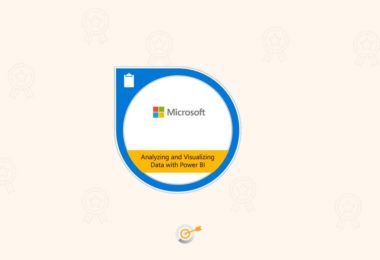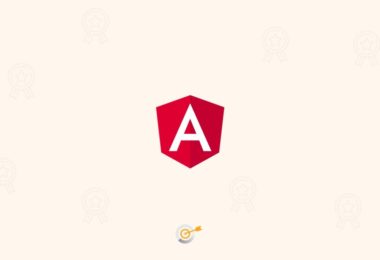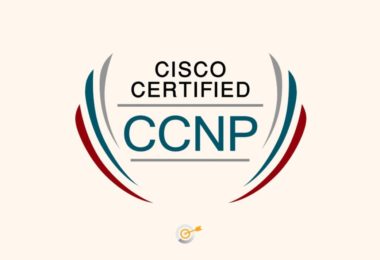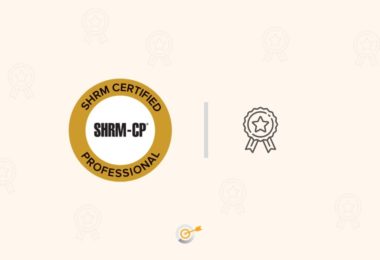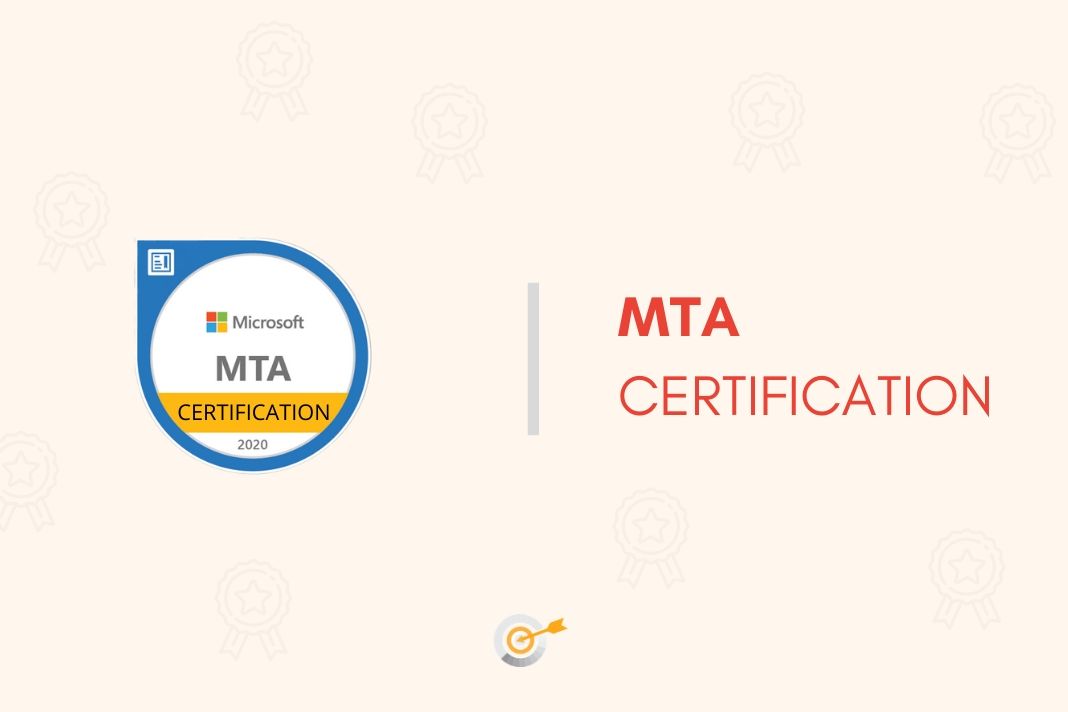
Overview of the Certification
MTA certifications are a great place to start if you would like to get into the technology field. MTA certifications address a wide spectrum of fundamental technical concepts, assess, and validate core technical knowledge, and enhance technical credibility(1).
Note: MTA exams do not qualify for MCP certification, nor are they a prerequisite for MCSA or MCSD certification. Earning an MTA: Microsoft Technology Associate certifications validate the fundamental knowledge needed to begin building a career in technology.
The MTA certification provides the foundational knowledge necessary to pursue Microsoft Certified Solutions Associate (MCSA) or Microsoft Certified Solutions Developer (MCSD) certifications. The MTA certification creates a new entry point to help those who are new to IT to jump start their careers. If you already have an in-depth understanding of and hands-on experience with Microsoft technologies, you might want to start with an MCSA certification or an MCSD certification.
Also Read ;
How to Get Microsoft Technology Associate Certification
A Step by Step Guide on How to Get Microsoft Certified: Azure Fundamentals Certification
Types of Exams in MTA
IT infrastructure
These MTA certifications are for individuals intending to build a career in desktop infrastructure, server infrastructure, or private cloud computing.
- Earn a Windows Operating System Fundamentals certification by passing Exam 349
- Earn a Windows Server Administration Fundamentals certification by passing Exam 365
- Earn a Networking Fundamentals certification by passing Exam 366
- Earn a Security Fundamentals certification by passing Exam 367
Database
This MTA certification is for individuals intending to build a career in data platform administration or business intelligence.
- Earn a Database Fundamentals certification by passing Exam 364
Developer
These MTA certifications are for individuals intending to build a career as a software developer. Start with an MTA in Software Development Fundamentals, and then select the additional topics to help you meet your career development goals.
- Earn a Software Development Fundamentals certification by passing Exam 361
- Earn a Web Development Fundamentals certification by passing Exam 363
- Earn a Microsoft .NET Development Fundamentals certification by passing Exam 372
- Earn a Gaming Development Fundamentals certification by passing Exam 374
- Earn an HTML5 App Development Fundamentals certification by passing Exam 375
- Earn a Software Testing Fundamentals certification by passing Exam 379
- Earn a Mobility and Device Fundamentals certification by passing Exam 368
- Earn a Cloud Fundamentals certification by passing Exam 369
About the Certification
There are no prerequisites for the certification. Since this is an entry-level certification, any individual who wants to gain access to the technological world can attempt this exam.
MTA is for people new to technology, who need to validate their knowledge of fundamental concepts before moving on to more advanced certifications, such as MCSA and MCSD. MTA certifications do not expire. Earning an MTA certification helps prove your knowledge of fundamental technology concepts. Having a validated certification from Microsoft can help you launch a successful career.
The Exams Under MTA
Exam 98-349/Course 40349
Windows Operating System Fundamentals
Candidates for this exam should have knowledge of fundamental Windows operating system concepts in a Windows 10 environment
Exam 98-361
Software Development Fundamentals
Candidates for this exam are seeking to prove core software development skills. It is recommended that candidates be familiar with the concepts of and have hands-on experience with the technologies described
Exam 98-364/Course 40364
Database Fundamentals
Candidates for this exam are seeking to prove introductory knowledge of and skills with databases, including relational databases, such as Microsoft SQL Server. It is recommended that candidates be familiar with the concepts of and have hands-on experience with the technologies
Exam 98-365
Windows Server Administration Fundamentals
This exam is designed to provide candidates with an assessment of their knowledge of fundamental server administration concepts. It is recommended that candidates become familiar with the concepts and the technologies described here by taking relevant training courses. Candidates are expected to have some hands-on experience with Windows Server, Windows-based networking, Active Directory, account management, and system recovery tools and concepts.
Exam 98-366
Networking Fundamentals
This exam is designed to provide candidates with an assessment of their knowledge of fundamental networking concepts. Candidates are expected to have some hands-on experience with Windows Server, Windows-based networking, network management tools, DNS, TCP/IP, names resolution process, and network protocols and topologies.
Exam 98-367
Security Fundamentals
This exam validates that a candidate has fundamental security knowledge and skills. It can serve as a stepping stone to the Microsoft Certified Solutions Associate (MCSA) exams. Candidates are expected to have some hands-on experience with Windows Server, Windows-based networking, Active Directory, anti-malware products, firewalls, network topologies and devices, and network ports.
[ Read: How To Be A Freelance IT Security Consultant ]
Exam 98-368/Course 40368
Mobility and Devices Fundamentals
This exam validates that a candidate has fundamental Windows devices and mobility knowledge and skills. It can serve as a stepping stone to the Microsoft Certified Solutions Associate (MCSA) exams. Candidates are expected to have some hands-on experience with Windows devices, Windows-based networking, Active Directory, antimalware products, firewalls, network topologies and devices, and network ports.
Exam 98-375
HTML5 Application Development Fundamentals
Candidates for this exam are seeking to prove core HTML5 client application development skills that will run on today’s touch-enabled devices. This exam focuses on using HTML5, CSS3, and JavaScript to develop client applications. Before taking this exam, candidates should have solid foundational knowledge of the topics outlined in the preparation guide, including CSS and JavaScript.
Exam 98-381
Introduction to Programming Using Python
Candidates for this exam should be able to recognize and write syntactically correct Python code, recognize data types supported by Python, and be able to recognize and write Python code that will logically solve a given problem. Candidates are expected to have had, at a minimum, instruction and/or hands-on experience of approximately 100 hours with the Python programming language, be familiar with its features and capabilities, and understand how to write, debug, and maintain well-formed, well documented Python code.
Exam 98-382
Introduction to Programming Using JavaScript
Candidates for this exam should be able to recognize and write syntactically correct JavaScript code, use data types supported by JavaScript, and be able to recognize and write JavaScript code that will logically solve a given problem. Candidates are expected to have at least 100 hours of instruction or hands-on experience with the JavaScript programming language. Candidates should also be familiar with JavaScript features and capabilities, and understand how to write, debug, and maintain well-formed, well documented JavaScript code.
Exam 98-383
Introduction to Programming Using HTML and CSS
Candidates for this exam should be able to recognize and write syntactically correct HTML and CSS, structure data using HTML elements, and create and apply styles using CSS. Candidates are expected to have at least 100 hours of instruction or hands-on experience with HTML and CSS, be familiar with their features and capabilities, and understand how to write, debug, and maintain well-formed HTML and CSS code.
Exam 98-388
Introduction to Programming Using Java
Candidates for this exam are application developers working with Java 6 SE or later, secondary and immediate post-secondary level students of software development, or entry-level software developers. Candidates should have at least 150 hours or instruction or hands-on experience with Java

